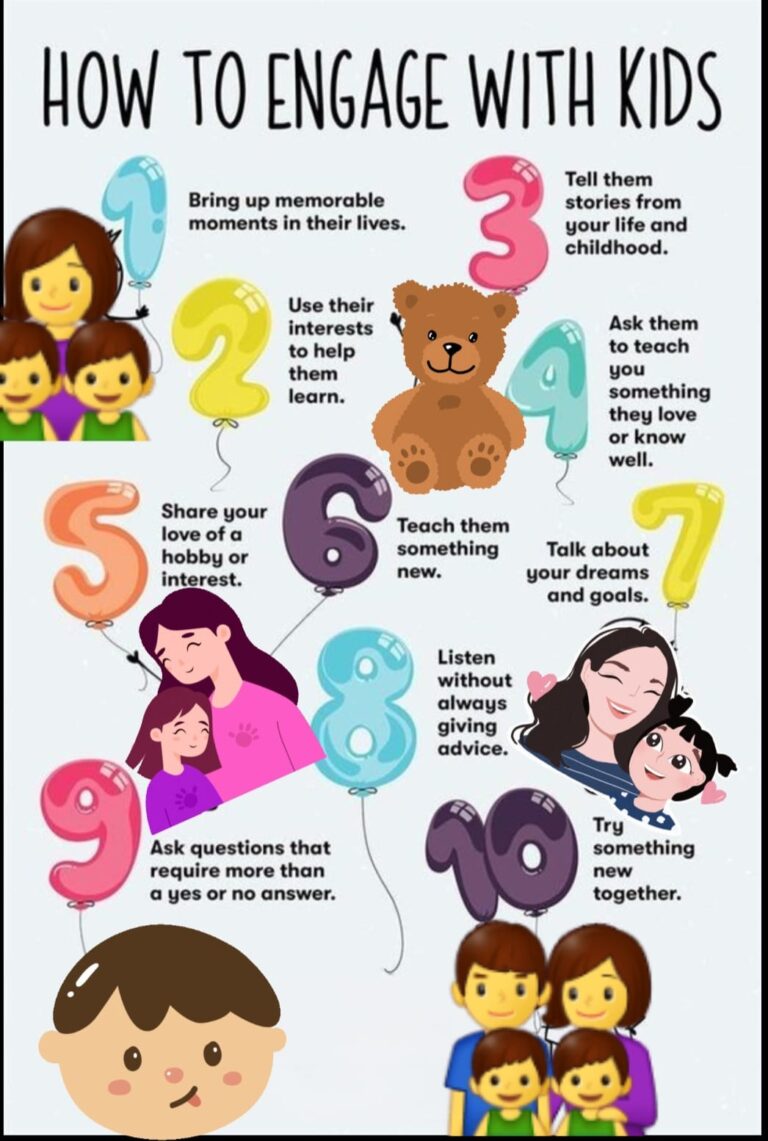These are great strategies for engaging with kids! Here’s how each of these points can be applied effectively:
1. Bring Memorable Moments of Their Life:
Reminisce about fun or significant times in their life. This helps them feel valued and strengthens your bond through shared memories.
2. Use Their Interests to Help Them Learn:
If they love dinosaurs, use that interest to teach math or history. Tailoring learning experiences to their passions makes education fun and meaningful.
3. Tell Them Stories from Your Life and Childhood:
Sharing your experiences helps build trust and understanding. Kids love hearing about their parents’ adventures and challenges, which can also teach life lessons.
4. Ask Them to Teach You Something:
Empower them by asking them to teach you something they know or are passionate about. This makes them feel capable and proud.
5. Share Your Love of a Hobby:
Whether it’s gardening, painting, or sports, involving kids in your hobbies can create lasting memories and inspire new interests in them.
6. Teach Them Something New:
Help them learn a new skill, whether it’s tying their shoes, riding a bike, or cooking. Learning together is a bonding experience.
7. Talk About Your Dreams and Goals:
Share your aspirations and ask them about theirs. This can open up a meaningful dialogue about hopes and ambitions, fostering motivation.
8. Listen Always Without Giving Advice:
Sometimes, kids just want to be heard without judgment. Being a good listener helps them feel supported and respected.
9. Ask Questions That Require More Than Yes/No:
Open-ended questions like “What was the best part of your day?” or “How did that make you feel?” encourage deeper conversations and critical thinking.
10. Try Something New Together:
Whether it’s trying a new recipe, learning a new sport, or exploring a new place, shared experiences create stronger connections and fun memories.
These techniques not only build rapport but also nurture emotional intelligence and critical thinking in children.
